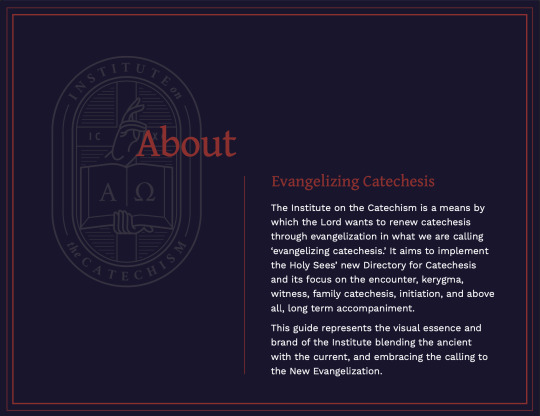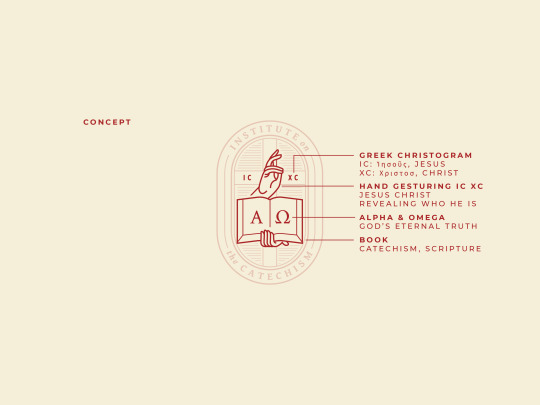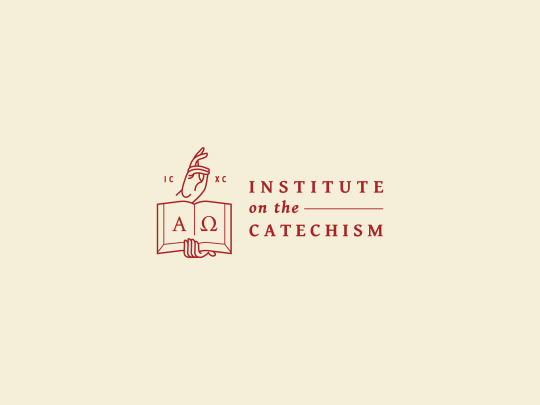#usccb
Explore tagged Tumblr posts
Note
Could you explain transubstantiation to a confused protestant?
Yes, of course. Transubstantiation is when the bread and wine become the real, actual body and blood of Christ.
"The reality that, in the Eucharist, bread and wine become the Body and Blood, Soul and Divinity of Christ without ceasing to appear as bread and wine to our five senses is one of the central mysteries of the Catholic faith." (USCCB)
It's really not much more simple than that. It was bread, it still looks like bread, but it's not bread anymore.
Document. The Mystery of the Eucharist in the Life of the Church, United States Conference of Catholic Bishops, 2021. USCCB,https://www.usccb.org/resources/mystery-eucharist-life-church. PDF download.
#Anonymous#transubstantiation#usccb#this is why i go feral over vampires#it was human‚ it still looks human‚ but it's not human anymore#Eucharist#catholic
36 notes
·
View notes
Text
Extraordinary Measures: It’s Time to Abolish the Latin Mass
Proponents of the Latin Mass are proponents of schism. The most recent ecumenical council—one of the highest forms of authority in the Catholic Church—decreed the Mass to be in the vernacular. To allow so many variations from the universal norm in the Latin-rite church can be damaging to the spirit of common prayer which we are called to by the Roman Ritual and the Roman Missal. Admittedly, the Dominican rite and the rite used by former Anglicans (among others) concern me, they’re only applicable in specific pastoral situations, and do not, for the most part, interfere with the unity of the Church at large.
A regressively conservative liturgical group in the Archdiocese of San Francisco, personally overseen and funded and led by Abp. Cordileone, is seeking signatures to a perition demanding more Latin Masses and rejecting a supposed rumored crackdown, additionally calling “to pray and fast for Pope Francis.” This sort of open disdain for the rule of the pope would be unheard of if attempted against P. Benedict XVI or P. John Paul II by these same people.
Out of boredom and concern, I have compiled frequent rationales calling for more Latin Masses and my responses to them below.
Is the Latin Mass more traditional than the Novus Ordo?
No. The word “traditional” has been heavily co-opted and re-appropriated by those supporting the Latin Mass, as opposed to those understanding the original meaning rooted more in the Church as a living tradition. Just because something has been done longer doesn’t necessarily make it more traditional in the Catholic sense. Jesus was not traditional in this way, nor were the early Christians. Even with this simplistic argument equating prolonged time with tradition, the original Last Supper wasn’t in Latin, nor was Latin the universal norm for quite some time at one point.
The Novus Ordo is traditional. Even the reformed rites in the Order of Christian Initiation of Adults, not yet mandatory in the US until Ash Wednesday of next year (2025), will be traditional despite some of the words and actions having never been said or done previously.
Since the pre-Vatican II ritual books are recent enough for some of the faithful to remember, would it be ok to allow its use for them?
No. We don’t allow other previous liturgies (e.g., use of the Sacramentary circa 2010 or other ancient ritual books) or translations for use, so why would we make an exception here? This seems to be a political ploy which I suspect is to inflame a popular movement in order to even further roll back the reforms of the Sacred Council. Also, take one look at the population of the Latin Mass attendees and you will see that the vast majority were not alive at the time of its customary use.
Is the Latin Mass more reverent and respectful than the Novus Ordo?
No. It’s almost like a reverse “sackcloth and ashes” situation where we have some people who wish to be seen being more opulent or more pious so as to virtue signal their self-perceived liturgical superiority.
Since young people are demanding the Latin Mass, should we listen to them and implement it?
No. Perhaps it’s helpful to ask: which young people are being listened to? Is it mostly conservative white men with money and lots of children who are doing the demanding? Are bishops listening to all the people of good will or instead narrowly searching for ones who already share their views? If young people do not find beauty and truth in the vernacular liturgy, then we have failed as catechists and liturgists. Although anecdotally, as someone who has worked with Catholic youth for many years, I can attest this is not what the majority want. It’s much more uncommon than Tumblr or other social media or even many bishops would have you think.
Is the Latin Mass more authentically Catholic?
No. Being under the authority of the Pope and following the binding ecumenical councils are important parts of what makes one Catholic. Not recognizing the authority of the Pope or Vatican II makes you literally a Protestant.
#catholic#catholicism#mass#liturgy#liturgist#pope francis#eucharist#Roman missal#Sacramentary#icel#Vox Clara#USCCB#Vatican#the Vatican
5 notes
·
View notes
Text
Jennifer Bendery at HuffPost:
The U.S. Conference of Catholic Bishops has formally apologized for the church’s role in inflicting trauma and abuse on generations of Native American children and families through its participation in Indian boarding schools. By a 181-2 vote, the conference on Friday approved a 56-page document titled “Keeping Christ’s Sacred Promise: A Pastoral Framework for Indigenous Ministry.” In it, the bishops lamented that “many Indigenous Catholics have felt a sense of abandonment” by church leaders who don’t understand “their unique cultural needs.” The bishops also acknowledged the role the church played in running Indian boarding schools.
“The Church recognizes that it has played a part in traumas experienced by Native children,” the bishops said. Elsewhere in the document, they said, “We apologize for the failure to nurture, strengthen, honor, recognize, and appreciate those entrusted to our pastoral care.” For nearly a century, from 1869 through the 1960s, the U.S. government removed hundreds of thousands of Indigenous children from tribal lands and forced them into boarding schools to assimilate them into white culture. Children endured abuse and violence and even died at these schools, all the while being cut off from their families. Most of the more than 500 Indian boarding schools were run by the U.S. government, but the Catholic Church operated more than 80 of them.
The US Conference of Catholic Bishops (USCCB) issues a formal apology for the American Catholic Church’s role of forcibly assimilating indigenous peoples and abusing them for generations upon generations.
#US Conference of Catholic Bishops#USCCB#Indigenous Peoples#Schools#Forced Assimilation#American Indian Residential Schools#Boarding Schools#Indian Residential Schools#American History#Native Americans#Truth and Healing Commission on Indian Boarding School Policies Act#Brian Schatz#Deb Haaland#Roman Catholic Church
3 notes
·
View notes
Text
The USCCB is working on a document about youth and young adult ministry. The Pillar interviewed one of the committee staff members who was involved in drafting this "pastoral framework", which will be voted on by the Bishops' Conference next month. I have been working in young adult ministry for most of my priesthood, and even before that. I've been a college chaplain and a college professor. I was recognized by my diocese for my work with young adults. And yet, I'd never heard of anything from the USCCB on this topic. So I was interested to read about this document.
The theme of the document will be "listen, teach, send". The reporter notes that this sounds very much like the FOCUS model of "win, build, send". Well, sniffs the staff member, "the threefold FOCUS perspective did come up, but that did not inspire [the document's] paradigm."
I have worked closely with FOCUS (the Felllowship of Catholic University Students) for years. It is one of the largest Catholic apostolates in the country, and it specializes in young people--people coming into colleges, people in college, people recently out of college. They have been thinking about and studying this demographic for years. They try lots of things, they learn what works, and they change what doesn't. They have 25 years of practical experience in working with young people, and they are very effective.
And so I ask, Why wouldn't the bishops conference want to start from what FOCUS has learned? Why would anyone think that the committee staff members have a better idea of how to do youth ministry than this gigantic and effective youth ministry organization?
[There's actually an answer to this question! The committee members can be found here: https://www.usccb.org/topics/youth-and-young-adult-ministries/bishops-working-group-youth-and-young-adults. Scrolling to the bottom, one finds a list of the consultants and staff members. The staff member who is in charge of Youth and Young Adult Ministries last worked directly with young adults in 2006, before the first smartphone. (Things have changed with America's youth since then!) The consultants include two people who work for the National Institute on Ministry with Young Adults and the USCCB National Advisory Team on Young Adult Ministry. These seem to be the same thing. The second organization does not have a functioning website, but simply redirects to the first organization's website, which seems barely to have been updated since 2021. (Young people use the web!) The other consultants seem to be specialists in outreach to minority communities. Objective conclusion: Nobody on the team has anything like the practical experience with young adults that FOCUS has.]
But that sort of argument is ad hominem--it might not matter who a person is if his ideas are great. My goal is not to disparage administrators and bureaucrats--Administration is one of the charismatic gifts of the Holy Spirit! Everyone's life is better when the bureaucrats are good at their job! But when we turn to the ideas... they do not seem so great.
The USCCB Committee seems commited to the idea of "accompanying the youth,"--one of its consultants wrote an article on "accompaniment" for Accompany Magazine-- which I think helps explain why they thought that the first step in dealing with young adults is to "listen" to them. I'm not opposed to listening to young people, but I prefer FOCUS' idea that the first step is to win them. If I ask an indifferent and poorly formed freshman in college what he wants out of the Church, I'm not sure he'll tell me anything worthwhile. That's because he hasn't thought about the Church. He's never wondered, "What is it about the Church that is keeping me from being a holy person with a deep interior life?" So, listening to him will not help me figure out that answer. The difference between "listening" and "winning" is that you can only listen to someone's needs if he or she can articulate them. Many young people don't know what they want from the Church. They need to be shown the Church in all its richness, so that they can respond to it. That's what FOCUS' idea of winning does.
The USCCB draft document proposes that the Church meet the young people "where they're at". The problem with this is that the Church is bigger than young people understand; basing our apostolic approach upon what they understand about the Church is to falsify the Church. The better move is not to shrink the Church to fit in the confines of a teenage intellect, but to make the teenager want to learn more about this cool and ancient Church. Impress them, don't coddle them.
Another difference between the "listen, teach, send" model and the "win, build, send" model of FOCUS: Listening and teaching are at the level of the intellect. But for many young adults, it's their wills that need to change before they are open to learning. I'm a professor, and I'm a big believer in teaching. But it's basically pointless to try to engage an unwilling student. FOCUS trains their missionaries in how to win young people over in a variety of ways, and they apply their intelligence to find new ways to reach the each generation of students. Once they've become engaged, that's when they start to thirst for the kind of teaching I'm more than happy to give.
Finally, it looks like the USCCB document will be focused on parishes as the locus of youth and young adult ministry.* FOCUS makes the small group the place where young people are principally formed. That is clearly the superior model, both for winning people and for building them up intellectually and humanly to be able to go out and spread the Gospel themselves. Sunday Mass is essential to the spiritual life, but it is not optimized for formation.
If the USCCB wants to listen to young people, I'd recommend that it listen to the young people in FOCUS. And in St. Paul's Outreach, in the World Youth Alliance, NET ministries, and other extremely effective apostolates working with young adults.
* The USCCB committee has as a major initiative to get young people to "actively participate" in the Mass on the Feast of Christ the King each year--see the 13:30 mark of this video. This is a meh idea, one that starts with a theological mistake: Active participation in the liturgy is a term used by Sacrosanctum Concilium #14, which means to be spiritually active--to pay attention at Mass and to pray along with the liturgy, rather than zoning out or praying the rosary while the priest prays the Mass. Active participation does not mean to participate as an usher or a lector or a greeter or some other physically active role. Obviously, youth and young adults are not engaged in the Mass unless they are spiritually engaged. Sometimes, those who are spiritually engaged also volunteer to be lectors. The Committee puts the cart before the horse.
2 notes
·
View notes
Text
Palabras impresionantemente preciosas sobre la importancia de este nombre. Gracias san Bernardo. Te queremos.
2 notes
·
View notes
Text
February 7, 2024 Scripture Reflection
Reading 1
1 Kgs 10:1-10
Responsorial Psalm
PS 37:5-6, 30-31, 39-40
Gospel
Mk 7:14-23
Reflection: I smile and chuckle when thinking about the readings today. They are all about wisdom, and I have never been acused of being a wise man. I am kind of glad actually. With wisdom comes responsibility. Being unwise I can claim “stupidity” as an out. But seriously, I look to pickup wisdom whenever I can. Anymore I try to shut up and listen so that I can learn from others. In the first reading you see Sheba and how she is impressed with Solomon, but in the long game, for all his wisdom, Solomon fell and fell hard. I guess thats another reason why I shy away from being called wise. I don’t want to get a big head and start to actually ignore wisdom like Solomon. In the Psalm we see that “just” murmur wisdom. This catches me a because you think that the just would shout wisdom from the tree tops. Again, humility in action. With wisdom one is close with God. I have heard that wisdom is truth lived. It makes sense, but with truth so skewed anymore, and how we all have our own truth, I think that definition can be… well insufficient. Actually the idea of personal truth should be reexamined. In the Gospel we see Jesus trying to dole out some wisdom. Unfortunately hard hearts do not hear it, and again ego and humility are left out of place. The disciples who have open hearts pursue and learn what Jesus is trying to say. So today, I will try to have an open and soft heart. I will try my best to put ego and pride aside so that I can learn, and then maybe, just maybe. I may become a bit more wiser.
0 notes
Text
Ending Abortion: A Pre-eminent Priority for the Catholic Church
The United States Conference of Catholic Bishops (USCCB) has reiterated the importance of addressing abortion as a top concern. Learn more about their stance in this latest news update.
0 notes
Text
Bishop Joseph N. Perry, auxiliary bishop of Chicago and chairman for the U.S. Conference of Catholic Bishops’ Ad Hoc Committee Against Racism, issued the following statement in response to the Supreme Court of the United States decision in Students for Fair Admissions v. Harvard, issued on June 29:
“Education is a gift, an opportunity, and an important aspect of our democracy that is not always within the reach of all, especially racial and ethnic groups who find themselves on the margins. It is our hope that our Catholic institutions of higher learning will continue to find ways to make education possible and affordable for everyone, regardless of their background. As St. Katharine Drexel, patroness and pioneer in Catholic education, was quoted as saying in our pastoral letter Open Wide Our Hearts: The Enduring Call to Love, “If we wish to serve God and love our neighbor as well, we must manifest our joy in the service we render to Him and them. Let us open wide our hearts. It is joy which invites us. Press forward and fear nothing.”
1 note
·
View note
Link
President Biden touts his “deep faith” every chance he gets. But his Church has had enough of it. And these Bishops smacked “devout Catholic” Joe Biden with a landmark loss. Anybody who has knows even a little bit about the Catholic Church knows that Joe Biden couldn’t be further from its teachings. Joe Biden supports […]
0 notes
Text
USCCB Respect Life: April Prayer Guide
April Prayer Guide en español Pray Our Father, 3 Hail Marys, Glory Be Reflect Each year, on the Second Sunday of Easter, the Church celebrates the Sunday of Divine Mercy. In the 1930s, Jesus appeared to a humble Polish nun, St. Maria Faustina Kowalska. As Jesus continued to appear to St. Faustina, she recorded His […]USCCB Respect Life: April Prayer Guide
View On WordPress
0 notes
Text
US States Consider Challenging the Seal of Confession | EWTN News Nightly
youtube
#youtube#catholic#catholicism#christianity#spiritual warfare#EWTN#persecution#secular world#secular#Vermont#usccb
0 notes
Photo






Visual identity for the Institute on the Catechism.
#logo#brand guide#visual identity#catholic#institute on the catechism#catechism#icon#ix cx#alpha#omega#jesus christ#branding#usccb
1 note
·
View note
Link
The Doctrinal Committee of the US Conference of Catholic Bishops has released a major document addressing so-called gender resassignment technologies, including puberty blockers and especially surgery. It explains the basic problems with the idea that our souls can be in the wrong body, it outlines nearly 100 years of magisterial teaching on what sorts of surgeries are not permitted by the natural law, and then it applies those precedents to the question of sex-change operations. Here’s a central argument:
“14. What is widely in practice today, however, and what is of great concern, is the range of technological interventions advocated by many in our society as treatments for what is termed “gender dysphoria” or “gender incongruence.” These interventions involve the use of surgical or chemical techniques that aim to exchange the sex characteristics of a patient’s body for those of the opposite sex or for simulations thereof. In the case of children, the exchange of sex characteristics is prepared by the administration of chemical puberty blockers, which arrest the natural course of puberty and prevent the development of some sex characteristics in the first place.
“15. These technological interventions are not morally justified either as attempts to repair a defect in the body or as attempts to sacrifice a part of the body for the sake of the whole. First, they do not repair a defect in the body: there is no disorder in the body that needs to be addressed; the bodily organs are normal and healthy. Second, the interventions do not sacrifice one part of the body for the good of the whole. When a part of the body is legitimately sacrificed for the sake of the whole body, whether by the entire removal or substantial reconfiguration of a bodily organ, the removal or reconfiguring of the bodily organ is reluctantly tolerated as the only way to address a serious threat to the body. Here, by contrast, the removal or reconfiguring is itself the desired result.
“16. Instead, rather than to repair some defect in the body or to sacrifice a part for the sake of the whole, these interventions are intended to transform the body so as to make it take on as much as possible the form of the opposite sex, contrary to the natural form of the body. They are attempts to alter the fundamental order and finality of the body and to replace it with something else.”
8 notes
·
View notes
Text
Gracias san Juan evangelista por esta bellísima y santa carta llena del amor de DIOS.
0 notes
Text
I saw the post about Catholic hospitals I reblogged yesterday again and glanced at the notes (…yeah…yikes) and because this is a special interest of mine and a particular pet peeve—
No, people cannot just “choose” in most cases to go to a non-Catholic hospital (or other healthcare facility). Four of the 10 largest U.S. healthcare systems are Catholic systems. Something like 1 in every 6 hospital beds nationwide is in a Catholic hospital and in some states, more than 40% of the hospital beds are in Catholic hospitals.
And, because of mergers between Catholic hospitals and non-Catholic hospitals, people may not even be aware that they are in a Catholic facility governed by the Ethical and Religious Directives (ERDs), which, BY THE WAY, outright prohibit or otherwise seriously curtail the provision of a LOT of different health services (not limited to abortion specifically or even reproductive healthcare more broadly). But even if the ERDs were limited to prohibiting abortion (although again I feel compelled to point out that the ERDs consider things like regular miscarriage management to be abortion), that shouldn’t matter? If you are in the business of providing healthcare, and especially if you receive incredible amounts of federal funding out of taxpayer dollars to do so, you should not be allowed to refuse to provide normal healthcare to patients (many of whom are not Catholic) because you are following the whims of the USCCB, which, last I checked, was not composed of medical doctors or other medical experts and is not qualified to tell large swaths of non-Catholic medical professionals how to practice medicine to meet their own professional obligations for standard-of-care treatment.
#chapel for ts#anyway there have been horror stories for a long time about women bleeding out from miscarriages after being refused treatment under ERDs#this is also where when you see stories about a hospital refusing to take someone off life support etc it’s generally for that reason
91 notes
·
View notes
Text
Pope Francis says that transgender people can be baptized under the same conditions as other people looking to be baptized. Conditions such as agreeing with Church doctrine. Anyone can be baptized at any time. The church usually errs on the side of it’s better to baptize rather than not. This is nothing new.
He also says that transgender people can be godparents under very specific conditions. I do not know exactly what said conditions are, but I do know that to be a godparent, you are supposed to agree with church doctrine. He says that married gay people should not be godparents, but can attend weddings and baptisms.


Matt Walsh is Catholic. Based on my limited understanding of Catholicism, this means either he has to abandon Catholicism if he disagrees, change his views and agree with the pope, or disagree with the pope directly and be excommunicated
#pope Francis#couldn’t read his original thing cuz I don’t speak Italian or Portuguese#but whatever#I read usccb and that’s close enough I think
20 notes
·
View notes